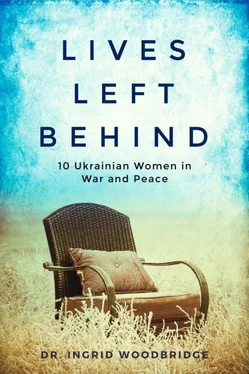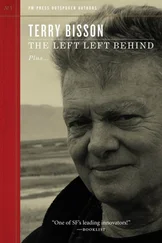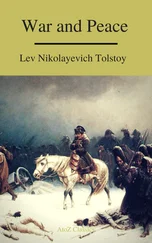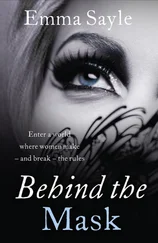The protesters endured months of clashes with the police, standing in rain and snow against a corrupt system. They endured until February 2014. Then snipers, trained security forces of the government, were stationed on key buildings around Independence Square and fired into the crowd of protesters, killing and wounding hundreds of defenseless victims. The voice of the people rose in response to these atrocities. A full revolution was now underway in Ukraine, and the world was watching. The consequential unfolding events would directly and dramatically affect Oksana and Elisey Pronin in Pervomaisk, far in the east of Ukraine.
The ousted president of Ukraine fled to Russia. By March 2014 Russian forces annexed Crimea. By April 2014 pro-Russian armed groups seized parts of the Donetsk and Lugansk regions. The war had come to the Pronin’s doorstep.
Normally, the large and active Baptist church served the community with many ministries. Staff and volunteers at the rehabilitation center helped addicts break free from alcohol and narcotics. Small groups met for Bible study and prayer, and many people were involved in serving the city and the church family. All was going well, and life was wonderful in small town Ukraine. Every day, life centered around activities of the church. Oksana remembered that they had planned a children’s camp for the summer of 2014.
Suddenly, war started in the neighboring town. They heard the sounds of artillery, and their windows vibrated from the impact of bombs. They fled into the basement of the house for safety and protection, not knowing how close the bombing would come to their town. Soldiers and police appeared in town suddenly, questioning people and examining their documents. Ukrainian mercenaries formed bands to seize control of the streets. These were criminals who formed a kind of mafia, with self-imposed power and rule. Oksana felt a lot of fear and anxiety about what was going on. Elisey’s account of the events and emotions during this traumatic time are recorded in his book Chronicles of Undeclared War . [4] Elisey Pronin, Chronicles of Undeclared War (Odessa, Ukraine: Takibook, 2017).
The youth group from church, around twenty teens, had already left for a camp in Kyiv called ‘Word of Life’. Oksana’s daughter Viola was part of that group. Many people expected the unrest to be over in about a week, but intense fighting continued. Elisey and Oksana called the youth group and informed their leaders that the situation was too unstable to return. The group needed to stay at Word of Life camp. This one-extra-week-stay turned into several months for the youth group.
At the church in Pervomaisk, Elisey made many phone calls to churches outside the war zone, asking who could receive church members if they wanted to leave Pervomaisk. At this point in the conflict, not many people wanted to leave their home area, because they did not understand how serious or how long-lasting this conflict would be. Everybody expected the fighting to last a few weeks at best, Oksana said. Everyone still hoped to return to some form of normalcy. No one understood the real danger. On the radio, citizens were told that the conflict and the fighting would not come to their city, that everything was under control, and therefore, there was no need to leave the city. They were told not to fear and not to make plans for an evacuation.
But Elisey saw things differently. He encouraged families, and especially moms with children, to find ways and opportunities to leave the city and go somewhere safe, even if it was just temporary. The Baptist church in Vinnytsia invited thirty adults plus their children to come and be temporary guests of the church at the small church-owned camp site. Normally, summer camps were held in this wooded area. Now it became one of the first refugee camps. [Technically, war-affected Ukrainians who remained in country are called internally displaced persons (IDP’s), but for simplicity, I will call them refugees.] Elisey bought the train tickets on the internet. The following day, this large group left Pervomaisk. It was a hot July day in 2014. Many of these people would never return to their home town. Oksana and her son David were part of this exodus. Elisey stayed behind, helping other members of the church to leave town. He also provided local assistance to people who wanted to stay and wait it out.
The travelers only got as far as Kyiv when news reached them that Pervomaisk was now also in the war zone. The battle scenario and the conflict had reached their beloved small town, after all. At this point, no one else was able or allowed to leave the city of Pervomaisk. This first group had escaped, but what uncertain future did their loved ones left behind now face?
Once the women and children arrived in Kyiv, they were able to call their husbands. They found out that war was happening on their streets, the sound of bombing was a reality in their city, people were in lockdown, and their husbands were pinned down in a city in turmoil. It was horrible news for the travelers. The refugees traveled onward and soon arrived and settled into the camp in Vinnytsia as well as they could. Their thoughts were constantly on those left behind in Pervomaisk.
To manage the situation in Pervomaisk, Christian brothers would move together into several homes to stick together through this crisis. In Oksana’s home, four men lived with Pastor Elisey. Their house had a large, solid basement, where Elisey hosted up to thirty people during the bomb raids, many of them neighbors of the Pronin family. They would read the Bible together, pray, and sing praise songs, focusing on God, not the gruesome war reality outside. It was an amazing opportunity for evangelism, Oksana stated, because people were afraid for their lives and sought answers to serious life questions.
Things did not get better; they actually got worse. Periodic short cease-fires would enable people to evacuate the war zone. Since the city did not provide any buses or transports for their citizens, it was only through the common effort of the believers that people were able to leave when the cease-fire was announced. It was difficult for the men in the church to find out when the evacuation windows would open up. For three months, Elisey organized convoys of cars for those church members who wanted to leave Pervomaisk.
Many people, at this point, wanted to leave, but they could not bring any of their belongings – not even beloved pets – on the westward journey. Every seat in every car was needed for people to sit, to squeeze together to get out of the war zone. Even though people came to the meeting point with suitcases, all of these had to be left behind in order to fit as many people in each car as possible. When the cease fire became effective, people were allowed to drive out in these convoys.
Additionally, people were encouraged to just walk out of town in a group of pedestrians, using the opportunity to leave the city any way they could. Some people in the broader area of Pervomaisk did not leave, some due to health problems, some due to a false hope of a short conflict. Many were simply too afraid to start a new life in another part of Ukraine. As much as was possible, the Pronin family and their church helped elderly and disabled people leave the war zone. But many of them wanted to stay, hoping for their old normal lives to return.
The people who left Pervomaisk in these convoys gathered in a nearby town called Severodonetsk at a very old church. The refugees began to group together to try to establish some order and structure to their temporary living situation since they were now refugees in their own country. All kinds of people mingled together in this camp, believers and unbelievers, men, women, and children. Anyone who wanted to leave the war zone and could, did at this point, leaving behind their lives in Pervomaisk.
Читать дальше












